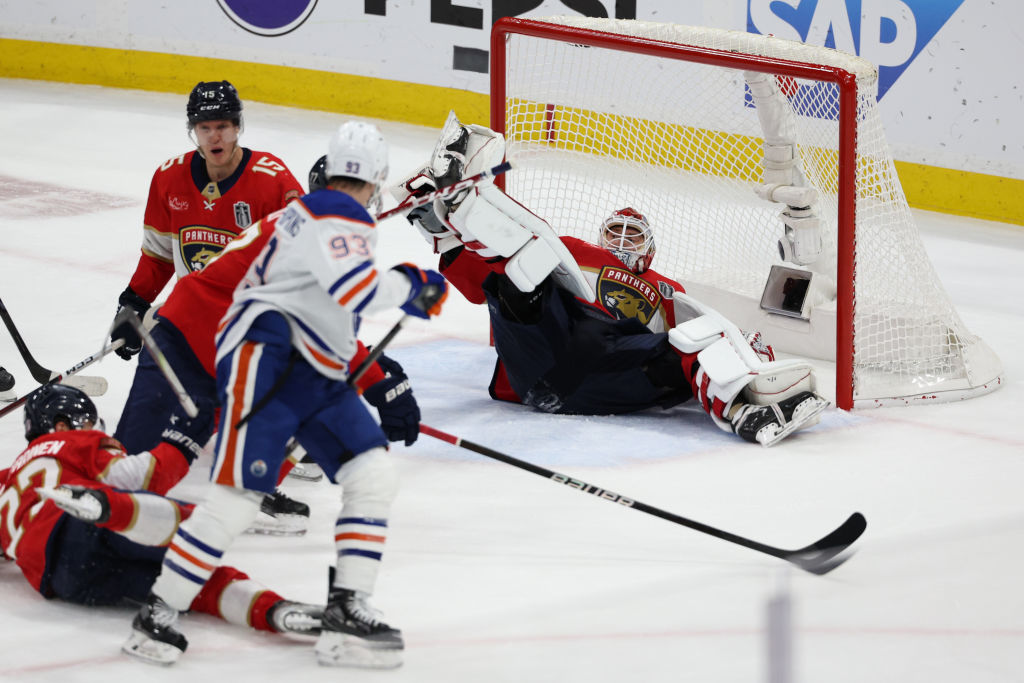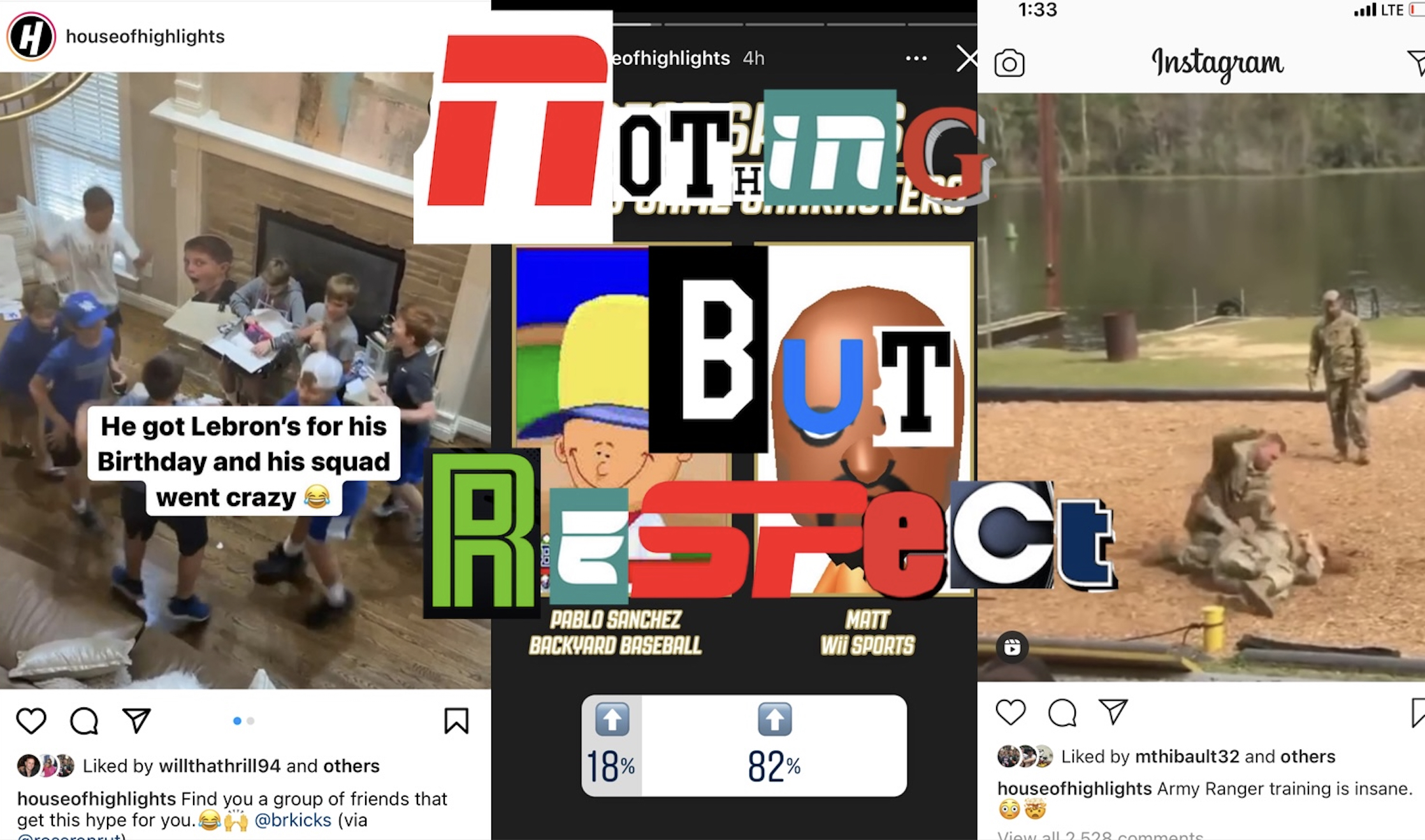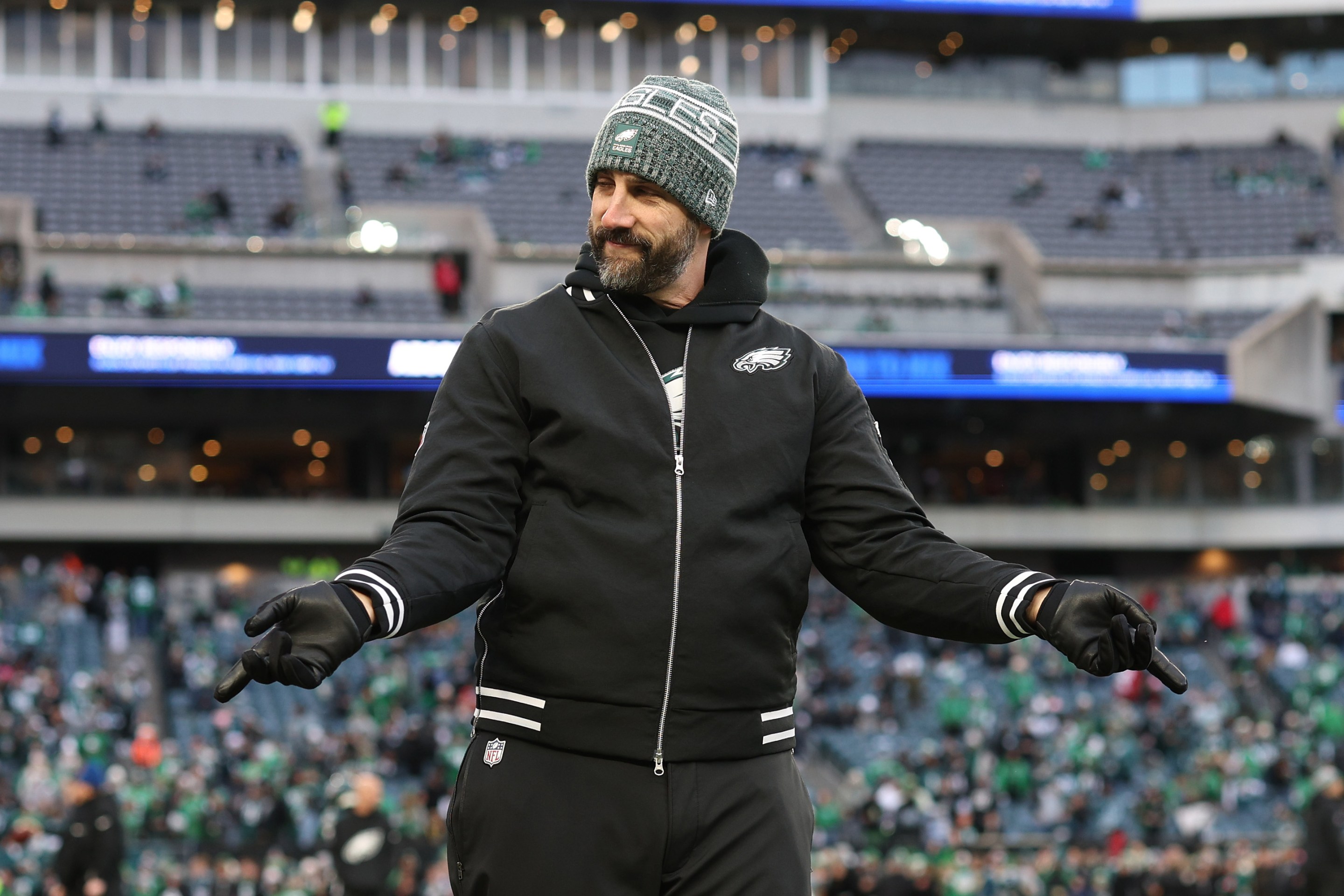I had accepted that the Panthers would hoist the Stanley Cup nearly two weeks ago, when they took a 3-0 series lead on the Oilers, and I admired the style with which they were going to pull it off. This was a brilliantly constructed team that had imposed its will on a quartet of formidable adversaries—recent champion Tampa, rock-solid Boston, Presidents' Trophy–winning New York, McDavid-employing Edmonton—and proven its superiority beyond a doubt. The Panthers wore teams down with their physicality, pinned the puck in the offensive zone through a combination of hustle and skill, and enjoyed the soothing presence of Sergei Bobrovsky in net, who covered for most mistakes. Heading into the playoffs, this was the team that had impressed me most, and never at any point did they appear unworthy of a title. The Panthers were clearly a dominant champion.
And then they spent the next 10 days looking increasingly weak and vulnerable on the biggest stage. Three times, the Panthers could have kicked the extra point and started the party, and three times, they ended up flat on their backs while Edmonton fist-bumped. They didn't show up at all for Game 4, though at the time it was almost gentlemanly, allowing Alberta one last chance to salute their boys in an 8-1 blowout. With a chance to clinch at home in Game 5, Bob was brittle, the power play was a net negative, and the team couldn't claw back from a 3-0 hole. In Game 6, back up north, they yet again delivered a wholly inadequate performance, and by this point, it mattered very much. If nobody believed in the Oilers at 0-3, or 1-3, or even 2-3, their third straight triumph waved the intoxicating possibility right under your nose. For the first time in the history of televised hockey, a team might actually take four straight must-win games and reverse-sweep a Stanley Cup Final. For anyone but the Florida die-hards, that monumental possibility had to take precedence over the alternative story: "This usually great team screwed up a ton in the clutch but barely avoided humiliation."
With a couple minutes left in Game 7, I was struggling to remember a time when the Oilers weren't chasing the Panthers. From Carter Verhaeghe's goal four minutes into Game 1 on June 8, that was all they'd been doing. The third period was more of the same—Edmonton, down 2-1, tried to will another crack in a Panther team that could hold steady on their own blue line. The Oiler opportunity felt endless—three minutes seemed to creep along like 30—and they came so close to the equalizer on multiple attempts. But the toll of their efforts was evident in an exhausted final minute where even moving the puck up the ice was too much of a labor. The unforgettable rally was dead. Florida had taunted us with visions of the improbable. Then, like the exact opposite of that adorable sleepy kitty who serves as their unofficial logo, they had torn that belief to shreds, and torn those shreds into dust.
"Shout out to my fans in Calgary. You know I couldn't let Edmonton win." - Matthew Tkachuk pic.twitter.com/QvnasdfH4c
— Sportsnet (@Sportsnet) June 25, 2024
I bought into the Panthers. Then I sold out on the idea that the Oilers could transcend the odds. So, today, I'm pretty disappointed with how the season ended and more than a little annoyed with Florida's high-wire act. Don't get me wrong: I'm glad the Panthers could give the people of Miami a quick diversion until the Heat make their first-round draft pick. It's nice that Paul Maurice can now put "Stanley Cup winner" on his résumé, right next to that line about how the Jets stopped listening to him. And it's cool that Matthew Tkachuk won't be threatening to infect opponents with his weird mouth diseases for at least a few months. But I will, perhaps foolishly, cling to the idea that there is something lesser about the Panthers' accomplishment because they ended their season losing three of their last four. They backed into a title, and I'm unsatisfied because of it. Congratulations to the 2023–24 Stanley Cup Champion Florida Panthers: You avoided being memorable.






